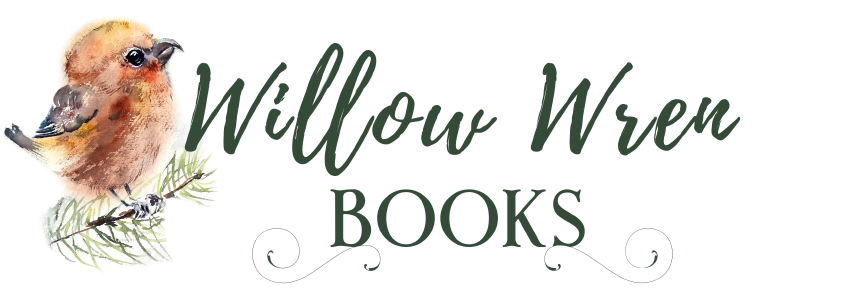Exploring Mars and MG Fiction with Douglas Meredith
Douglas Meredith, author of the Generation Mars series, shares insights into his journey of writing middle grade fiction. Inspired by the need for engaging and age-appropriate content for advanced young readers, Meredith crafted a series following Cas, the first kid born on Mars, and her sister, Ori, as they navigate life on the red planet. Through a blend of hard science fiction and heartwarming adventure, Meredith aims to challenge and captivate readers while subtly imparting values of optimism, kindness, and community.
Could you share a little about yourself and your current middle grade novel?
My name is Douglas Meredith, and I am the author of the children’s book series Generation Mars, which follows Cas, the first kid born on Mars, and her sister, Ori, in their adventures growing up in an environment unlike any in which children have grown up before. After a prelude book, Scratching the Surface, each book in the series uses one of the fundamental requirements of survival as title and theme: Air, Shelter, Water, and Food. The most recent release is Water. The kids are on a field trip to one of the colony’s old ice mines when a seismic event traps them in a shifting and groaning labyrinth of ice. It’s a dungeon crawl with a hard scifi spin (no monsters or magic, but plenty of scary weirdness nonetheless).
What inspired you to start writing middle grade fiction?
Ha, well, I hadn’t planned to when I started the series. My kids were advanced readers from a young age, and we had a lot of trouble finding age-appropriate things for them to read that weren’t just silly. So, I thought I might try to fill that niche with some early reader/picture books that would feel a bit more grown up to the reader. The first book of Generation Mars, what I now call the prelude, is Scratching the Surface. That started as a picture book about the first Martian’s first steps on the surface but grew into a chapter book before it was finished. I call it an early reader, though some might argue that the vocabulary and sentence structure doesn’t fit that categorization. I don’t worry much about that sort of thing. Kids can read and understand much more advanced writing than we think, as long as it’s engaging to them. I make it a point not to write down to them. Another thing is that, as the series has progressed, and I’ve researched more about what these kids’ lives might be like on Mars, my ideas have grown. Each subsequent book has been more advanced than its predecessor. The series now spans early reader through upper middle grade. This makes marketing the series a challenge, but I think any age can enjoy all the books (younger children might need to have the later books read to them).
How do you approach crafting characters that resonate with middle grade readers?
In formulating answers to questions like this, I’m realizing that my approach to writing is pretty off-the-cuff. I’ve never thought about how I approach character development! But I can think of a couple points to make. My books are plot driven. Character development falls out of how they handle the situations I put them in. This has led to some interesting characteristics that came as a surprise to me as I wrote them. Cas worries a lot and is an over-thinker, but she is always collected and ready to act instantly when events require it. Ori has many irrational fears but is self-aware and learning how to handle them. I don’t really think of character resonance from the perspective of a reader’s age. I want my characters to resonate with parents as well as kids.
Do you have a favorite middle grade book?
I’d have to say I’m drawn to authors that write books for kids that aren’t just for kids. Louis Sachar and Neil Gaiman come to mind. But Generation Mars hails from a more adult lineage: hard scifi writers like Arthur C. Clark, Isaac Asimov, Neal Stephenson, and Andy Weir, along with hopepunk writers like Becky Chambers, Hank Green, and James S.A. Corey (Daniel Abraham and Ty Franck). I’m trying to bring that sort of thing to a younger audience.
Can you describe your typical writing day?
My creative process is a bit haphazard. Between books, I read a lot: other science fiction, philosophy, technical literature on topics related to the books. Eventually, something will act as a seed crystal, and a story begins to coalesce. At that point, I start enforcing a write-every-day regimen. I have a full-time job as a software developer. So, often, this might be only a half hour. Anything is better than nothing. Much of this writing is me talking to myself in loose Socratic dialogue, working out my thoughts on the story. Eventually, these get to a point where I can start writing scenes. Eventually, these scenes begin to relate to each other. Clearly, I’m not a “planner”. As you can imagine, it’s a slow process. But I find it incredibly satisfying to work this way. It leaves room for surprise.
What do you hope young readers will take away from your books?
Optimism is a superpower. Kindness is strength. Society is something you create with those around you; what do you want it to be? In the confines of Martian habitation, tolerance is a key virtue. Care for others, as well. No one can exist without the help of others and nowhere is this more evident than in a colony on a distant planet. I postulate that harshness of the environment leads to a softness in the people. Not weakness; compassion. In a tight living situation in which everyone is dependent on each other, two fundamental precepts develop: 1) an acute sense of responsibility to the community; and 2) a respect for the privacy and uniqueness of the individual. The culture of Dawn demonstrates that these two attitudes are not mutually exclusive.
The adults of the colony try to live by these ideals, but they carry the baggage of Earth, and it takes effort. The kids have no baggage. For them, these truths are, in the fullest sense of the phrase, self-evident. I don’t present this overtly, but the kids develop a unique culture that appears somewhat strange to the adults: calm, coolly intelligent, uncannily inventive, close knit, with a level of independence and maturity that is surprising. These are traits that would serve the next generation well, here on Earth or wherever they call home.
Can you share any tips or advice for aspiring middle grade authors?
Read. Read a lot. Grammar is important, but it’s tough to learn cold. The more you read, the more you unconsciously pick up the rules of language. Then, when you study grammar, it’s more like you’re learning why stuff you already know is the way it is. Also, every author has a unique style. The more you read, the more styles you absorb, and all these will influence how you put words together yourself: your style.
And, my gosh, write with style, even for middle grade. At this level, I find there is a tendency to write bland prose in a misguided attempt to make it more accessible. Engage your readers, and they will stick with you.
How do you incorporate humor and adventure into your middle grade stories?
I don’t write for humor, but it does manifest in my books. The first chapter of Shelter deals with the sisters figuring out how to work a toilet (loo) on the surface of Mars. After they are done, they walk back to an airlock into the colony.
“Would you rather…” said Cas, “walk from the Forest to our hab with a bag from a loo on your head or walk from here to the ObsDome without a helmet?”
Ori smiled. Their mother had taught them this game. “That’s easy,” she said. “Here to the ObsDome without a helmet.”
“Seriously?” said Cas. “You’d never make it. At least with poop-head you’d still be alive.”
“Well,” said Ori, “Without a helmet, I’d have 15 seconds before I pass out. I’ve done that before, and it’s no big deal. Then I’d have a couple minutes before I’d die, and you or someone would carry me into the airlock in that time. That’s way better than poop-head.”
Cas had to admit that her sister’s reasoning was sound.
It’s subtle and serves the development of the characters. As for adventure, well, that falls right out of the situation in which they are growing up. To live in an environment that does not support your living means that mortal adventure is everyday experience. The challenge for me, in telling their stories, is to tame that reality.
What upcoming project can readers look forward to from you?
I’m currently working on the next book, Food. Water provided a lot of backstory regarding the history of the colony and its relationship with Earth. Food will take that backstory and run with it. Despite all my talk earlier about not planning as I write, I left overt hooks in Water for events I had in mind for Food. I’m still in the Socratic dialogue phase, but a plot framework is developing. There are new characters and a significant change in scenery, as much of the story takes place on the Earth’s moon and a transport making its way to Mars. This will allow me to explore cultural differences between the societies of Earth and Mars, while also laying the groundwork for a second series.
Is there anything else you’d like to share that I haven’t covered in the interview?
The children’s book author Geraldine McCaughrean, in her Carnegie Medal acceptance speech, said: “We master words by meeting them, not by avoiding them.” There are a lot of books out there, and kids have busy lives. Engage them. Challenge them. Don’t waste their time.


